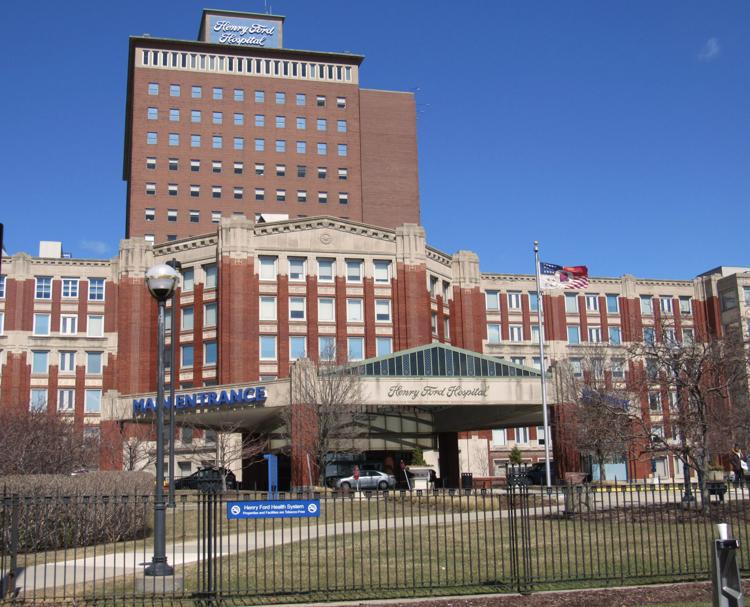Bill shielding health care workers from liability during state of emergency moves to governor’s desk

The Henry Ford Hospital on West Grand Blvd in Detroit.
(The Center Square) – Michigan legislators moved the state further toward litigation protections for the state’s health care workers, deemed especially pressing during the coronavirus pandemic.
Senate Bill 899, “Immunity from Liability for Health Care Provided During a State of Emergency,” was amended and approved Wednesday night by the Michigan House of Representatives Judiciary Committee.
The bill is sponsored by Sen. Michael MacDonald, R-Macomb Township, and passed the Senate last May.
SB 899 amends section 11 of Michigan’s Emergency Management Act to shield health care workers from liability during a state of emergency. According to Senate fiscal analysts, the bill “would have a minimal fiscal impact,” but “could cause a medium term marginal reduction in malpractice insurance premiums below what they would be otherwise.” As a result, the analysts reported, this “would lead to a slight reduction in expenses for medical practices run by public universities and hospitals owned by local units of government.”
The immunity granted health care workers and facilities will cover the period of time between March 10, 2020 and January 1, 2021, as the state contends with the COVID-19 pandemic.
“This is about protecting our front-line health care workers who have risked their lives and made huge sacrifices to help provide critical care during the COVID-19 outbreak,” MacDonald said in a statement.
“This is a fight against a deadly virus with no known cure. To save lives, our medical professionals have made incredibly difficult decisions and they will continue to do so until this pandemic is over.
The bill is supported by the Michigan Health and Hospital Association as well as the Michigan State Medical Society. As well, 16 health care facilities throughout the state supported the measure.
“The MHA is working with the Legislature and the administration on Senate Bill 899, which would secure important immunity protections similar to those afforded in EO 2020-61,” MHA Communications Director John Karasinski told The Center Square in an email.
Karansinski was referring to Gov. Gretchen Whitmer’s Executive Order 2020-61, which offered similar liability protections for health care workers and facilities, which was issued April 26. On July 13, the governor effectively rescinded the order with Executive Order 150.
“As Michigan continues to make progress in slowing the spread of COVID-19, it is no longer necessary to permit medical professionals to practice beyond the limits of their licenses. I have no doubt suspending these scope of practice laws helped save countless lives and ensured our hospitals were fully staffed to care for COVID-19 patients,” Whitmer said in a statement on July 13.
Jarrett Skorup, director of marketing and communications at the Mackinac Center for Public Policy, noted in an email to The Center Square the governor’s executive orders are inconsistent.
Stating the governor currently is enforcing greater restrictions of Michigan residents’ lives, Skorup said rescinding the protections provided by EO 2020-61 was erroneous.
“Michigan has some of the strictest medical licensing rules in the nation and the governor should lower them during a state of emergency and lawmakers should repeal them for good,” Skorup wrote.
In a 2010 report, the Foundation for Fair Justice concluded Michigan was one of the 10 most litigious states in the nation, along with New Jersey, New York, Florida, Illinois, Pennsylvania, Missouri, Montana, Connecticut and California.
On May 4, 2020, the Heritage Foundation issued a report written by Brian E. Finch, visiting legal fellow in the Edwin Meese III Center for Legal and Judicial Studies, of the Institute for Constitutional Government. Finch advocated for a federal law to limit criminal and civil liability lawsuits for medical practitioners and facilities.
“For America’s economic recovery to move forward with relatively few hitches, liability limits are essential,” Finch wrote.
“History has shown how easily the mere threat of lawsuits by aggressive tort lawyers can derail critical recovery efforts,” Finch said.
“By modifying existing statutes that limit liability in a way that assures both fewer frivolous tort suits and effective pandemic mitigation and recovery policies, Washington will have done its part to prevent unscrupulous lawyers from needlessly hindering the economic recovery that Americans so desperately need,” Finch said.
SB 899 is on its way to Whitmer’s desk.
“I hope the governor will stand up for Michigan health care workers and sign these simple protections into law to allow them to focus on providing the best care possible for COVID-19 patients,” MacDonald said in a statement.

